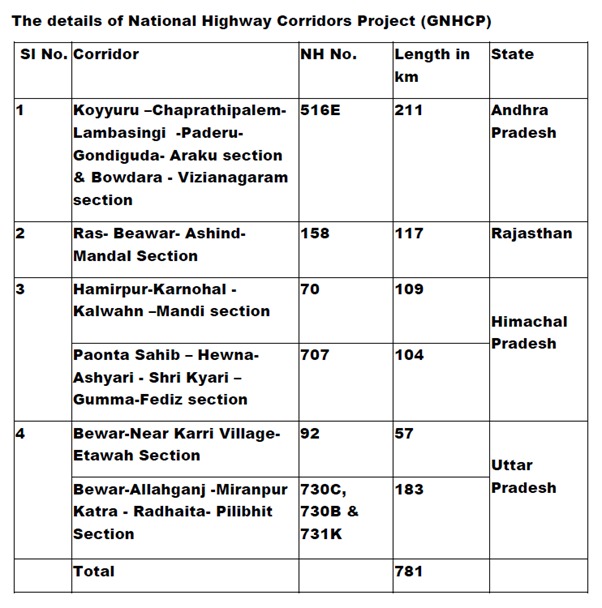New Delhi, India – In a significant move towards sustainable infrastructure, the Government of India has partnered with the World Bank to launch the Green National Highway Corridors Project (GNHCP). The ambitious project, spanning 781 kilometers across the states of Himachal Pradesh, Rajasthan, Uttar Pradesh, and Andhra Pradesh, aims to revolutionize road construction with eco-friendly practices and climate-resilient technologies. With a total project cost of USD 1,288.24 million (INR 7,662.47 crore), the World Bank’s loan assistance of USD 500 million will play a crucial role in this endeavor.
The GNHCP is slated for completion by May 2026, and it promises to set new standards in highway construction by prioritizing environmental sustainability. Key aspects of the project include:
- Resource Conservation: Utilizing cement-treated sub-base and reclaimed asphalt pavement to conserve natural resources.
- Local Material Use: Promoting the use of local and marginal materials such as lime, fly ash, and waste plastic.
- Bio-engineering Solutions: Implementing slope protection measures with bio-engineering techniques like coco fiber/jute erosion control blankets, hydroseeding, bamboo and hedge brush planting, and geocells with vegetation.
These green technologies are expected to significantly reduce carbon emissions and ensure the conservation of natural resources throughout the highway’s lifecycle. By providing smooth, all-weather connectivity, the project aims to foster socio-economic development, enhance trade, and improve employment opportunities in the region. Improved connectivity to the inner regions will bring these areas closer to mainstream economic activities, promoting inclusive growth and prosperity.
Union Minister for Road Transport and Highways, Nitin Gadkari, shared this information in a written reply to the Lok Sabha today, highlighting the project’s potential to transform India’s infrastructure landscape while safeguarding the environment.








